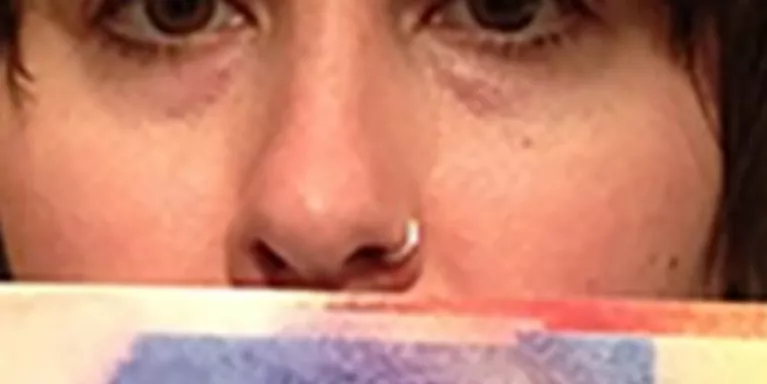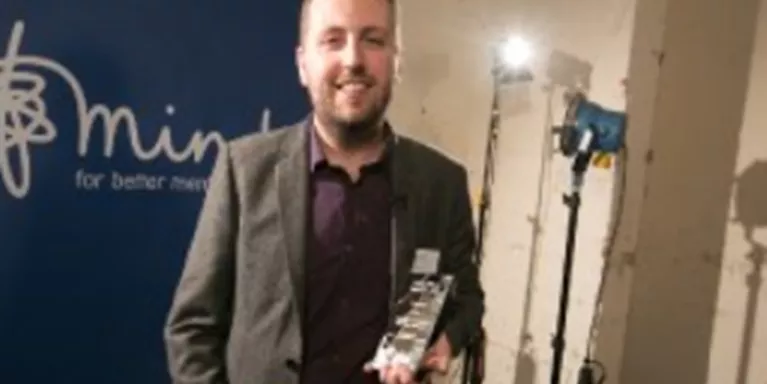Reviewing the VMG Mind Awards Digital Media Category
Sharon reviews the Digital Media Category for the VMG Mind Media Awards 2013.
Purple Persuasion
Charlotte Walker set up her blog Purple Persuasion in 2011 to write about her own lived experience of being a mum of two with bipolar disorder. With 25 years of dealing with the illness, she knows what she’s talking about. Being diagnosed with bipolar disorder myself I tend to follow blogs like this as they are a source of wisdom and inspiration in the darkest times and Purple Persuasion is one I’m going to add to my list.
Her posts are intelligently written and always honest and real. Her most recent post is about pleading with her GP to be referred to psychiatric services, she highlights the difficulty of being able to describe the depth and horror of how she feels at the time so she will be taken seriously. This resonated with me as I have been in the position many times of having to convince my GP that I really do need help. However, when Charlotte’s GP finally listens to her she assures her she will refer her but tells her that as she is ‘very self-aware’ she is going to be ok.
Perhaps being told you are self-aware and have insight into your condition is a compliment to some degree but as Charlotte points out, having knowledge is not the same as having control; she just knows what is coming next.
Charlotte is also something of an activist and I read the posts about her part in protesting against the now famous Asylum Maze at Thorpe Park which has caused such controversy and outrage recently. I think most of us will be aware of the #asylumNO hashtag by now. Charlotte documents the letters that she has written to Nick Varney, the head of Thorpe Park’s parent company Merlin Entertainments and his responses. This is a must-read for anyone interested in the campaign.
It’s OK Campaign
Being in my thirties I don’t tend to be all that clued-up on the services available to young people with mental health problems, so this site was something of an eye-opener. May Gabriel set up the It’s OK Campaign in 2011 to provide a place online for young people like herself to find information and to help educate people about mental health problems in general.
May began having problems with depression in her early teens and was first hospitalised when she was 15. She was hospitalised several times over the next few years and she writes candidly and openly about her experiences. In spite of the battles she has faced she still managed to get a place in college and gained 3 GCSE’s in Maths, English and Geography. I think her testimony alone will be encouraging for young people who are concerned about the impact periods of illness might have on their education. Even if things don’t go according to plan at school there are always other options, through college, access courses or even open learning courses. (At the time of writing May is busy working on university applications.)
As well as running her online campaign, May gave a talk earlier this year at the UCL Challenging Stigma Conference. As an advocate for young people I think we have only seen the start of May’s involvement in the mental health arena, she is definitely one to watch.
Secret Life of a Manic Depressive
This is a blog I have followed for the past year so I am quite familiar with the style and approach of Secret Life of a Manic Depressive and I generally try to stay up to date with Seaneen’s new posts. This blog is the longest running out of the four I am reviewing here and what I love about this blog is the unashamed raw honesty of the writing. Seaneen writes from the heart, she does not polish up her posts for public viewing and she is unapologetic about her views and her ‘rants.’ I admire her for this as it takes great courage to put it out there and risk criticism.
Reading over her posts again for the purpose of this review, a few things stood out for me as being quite typical of Seaneen’s bold style. In one post she says that blogging and using Twitter and Facebook have replaced the purpose of religion in her need to feel that someone is watching over her. That struck me as quite profound and has left me wondering if reaching out online fulfils a spiritual as well as a social need for most of us.
In her post The Recovery Myth I had to laugh when she says that the PR for mental health must have been the same PR used for tampon adverts. Recovery rhetoric does tend to promote the belief that once in recovery you too can go horse-riding, sky-diving and anything else adventurous that springs to mind.
The Blurt Foundation
I love the tag line of The Blurt Foundation: ‘Stamping out the stigma…one word at a time.’
It describes precisely what the Blurt Foundation was formed for, although now it offers more than words. I was extremely impressed by the amount of informative resources on offer on their website, there are online leaflets with general information about depression, PTSD and post-natal depression. There is also information about the different areas of our lives impacted by depression; sleep, nutrition, work and money to name a few. What I really like are the resources available for employers and for those who want to support people with depression.
They also provide an online mentoring service which means that someone in need of support will have daily online communication with a volunteer. This is a crucial service as I know from personal experience how easy it is to become socially isolated. Going online to access support is a lot less daunting than speaking to someone on the phone and can be a lifeline when you are too ill to make it past the front door.
The Blurt Foundation is offering an invaluable online resource and provides a friendly, cosy, safe place for those who are in need. I see it growing into something even bigger in the future.


Get involved
There are lots of different ways that you can support us. We're a charity and we couldn't continue our work without your help.
Share your story with others
Blogs and stories can show that people with mental health problems are cared about, understood and listened to. We can use it to challenge the status quo and change attitudes.

















